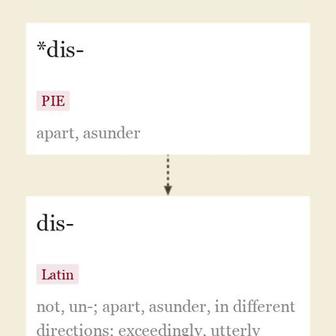Words related to deluge
c. 1300, abreggen, "make shorter, shorten, condense," from Old French abregier, abrigier "abridge, diminish, shorten" (12c., Modern French abréger), from Late Latin abbreviare "make short," from Latin ad "to" (see ad-) + breviare "shorten," from brevis "short, low, little, shallow" (from PIE root *mregh-u- "short").
Abbreviate is the same word directly from Latin. The sound development that turned Latin -vi- to French -dg- is paralleled in assuage (from assuavidare) and deluge (from diluvium). Of writing, "shorten by omission," late 14c. Related: Abridged; abridging.
"before Noah's flood," 1640s, from Latin ante "before" (from PIE root *ant- "front, forehead," with derivatives meaning "in front of, before") + diluvium "a flood" (see deluge (n.)). Hence (humorously or disparagingly) "very antiquated" (1726). Coined by English physician Sir Thomas Browne (1605-1682). As a noun meaning "person who lived before the Flood," from 1680s. Related: antediluvial (1823).
"soften, alleviate," usually figuratively, of pain, anger, passion, grief, etc., c. 1300, from Anglo-French assuager, Old French assoagier "soften, moderate, alleviate, calm, soothe, pacify," from Vulgar Latin *adsuaviare, from Latin ad "to" (see ad-) + suavis "sweet, agreeable" (from PIE root *swād- "sweet, pleasant;" see sweet (adj.)).
In Middle English very common as swage, a shortened form, also in part from Anglo-French suager, a variant of Old French soagier. For sound development in French, compare deluge from Latin diluvium, abridge from abbreviare. Related: Assuaged; assuaging.
word-forming element of Latin origin meaning 1. "lack of, not" (as in dishonest); 2. "opposite of, do the opposite of" (as in disallow); 3. "apart, away" (as in discard), from Old French des- or directly from Latin dis- "apart, asunder, in a different direction, between," figuratively "not, un-," also "exceedingly, utterly." Assimilated as dif- before -f- and to di- before most voiced consonants.
The Latin prefix is from PIE *dis- "apart, asunder" (source also of Old English te-, Old Saxon ti-, Old High German ze-, German zer-). The PIE root is a secondary form of *dwis- and thus is related to Latin bis "twice" (originally *dvis) and to duo, on notion of "two ways, in twain" (hence "apart, asunder").
In classical Latin, dis- paralleled de- and had much the same meaning, but in Late Latin dis- came to be the favored form and this passed into Old French as des-, the form used for compound words formed in Old French, where it increasingly had a privative sense ("not"). In English, many of these words eventually were altered back to dis-, while in French many have been altered back to de-. The usual confusion prevails.
As a living prefix in English, it reverses or negatives what it is affixed to. Sometimes, as in Italian, it is reduced to s- (as in spend, splay, sport, sdain for disdain, and the surnames Spencer and Spence).
*leuə-, Proto-Indo-European root meaning "to wash."
It forms all or part of: ablution; alluvium; deluge; dilute; elution; lather; latrine; launder; lautitious; lavage; lavation; lavatory; lave; lavish; lotion; lye.
It is the hypothetical source of/evidence for its existence is provided by: Greek louein "to wash, bathe;" Latin lavare "to wash," luere "to wash;" Old Irish loathar "basin," Breton laouer "trough;" Old English leaþor "lather," læg "lye."


